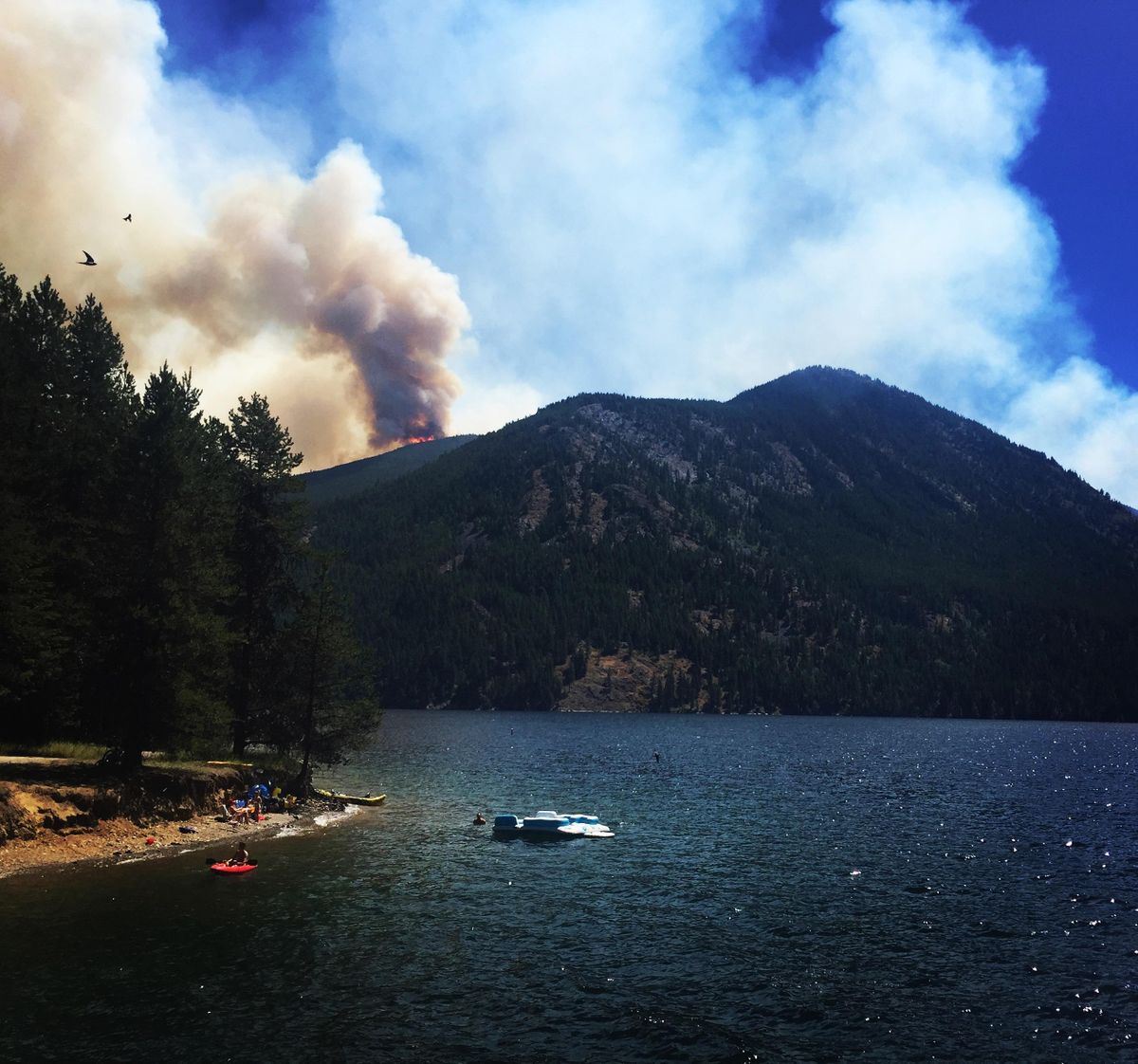Noisy Creek Fire near Sullivan Lake grows to about 1,700 acres; no structures threatened

A fire burning far north of Spokane in Pend Oreille County near Sullivan Lake grew to about 1,700 acres Monday night.
Called the Noisy Creek Fire, it prompted a smattering of road closures in the Colville National Forest, including Forest Road 22/2220 from East Sullivan Campground to Pass Creek Pass, in addition to the Noisy Creek Campground at the south end of Sullivan Lake. No structures are threatened.
State resources have been tapped to fight the fire, including a 10-person HotShot crew, two helicopters scooping and dumping water from Sullivan Lake and about 80 personnel from multiple agencies, said Liv Stecker, the public information officer for the Department of Natural Resources Type-3 Incident Management Team.
Crews have made a fire line along the southern and northern edges of the fire, Stecker said, which has contained the blaze from threatening any structures. The fire grew over night, but winds pushed it to the north and west along the mountainous terrain where it’s feeding on mostly timber and brush.
The fire is 4-percent contained, and is expected to stay that way throughout the day, Stecker said. She said crews will continue to attack it with water from helicopters and focus on keeping the fire from jumping the lines on the north side as it makes it way towards Sullivan Creek.
“There’s going to be a bit of a transition period while we get personnel in place,” Stecker said Tuesday morning. “Then we’ll reinforce the line on the north side.”
The fire began on July 15 after a lightning event moved across the northern part of the Colville National Forest in the early morning.
Campgrounds on the north end of the lake remain open. Stecker urged those recreating on the lake to use caution and not approach anywhere where smoke is emanating.
“We don’t want to close the lake down, but we want to get the word out to people to stay back from fire activity,” she said. “We’re trying to get word of mouth out to get people to voluntarily stay back from what’s going on.”